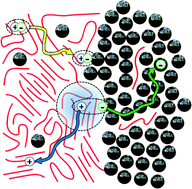Charge generation in organic photovoltaics: a review of theory and computation
Abstract
Due to their amenability to highly scalable fabrication and steadily improving efficiencies, organic photovoltaics (OPVs) offer great potential as an alternative to carbon-based fuel sources. With recently reported power conversion efficiencies of 11–12%, OPVs are on the brink of economic viability. However, to push these technologies forward into widespread use, further optimizations of efficiency are needed. The process of exciton dissociation and charge separation at donor/acceptor interfaces is a major factor influencing the power conversion efficiency of these devices, with loss of useful energy occurring if the charges fail to separate. However, this process of exciton dissociation and separation at OPV heterojunctions is not fully understood, and experimental efforts to optimize these processes via trial and error are costly. Thus, theoretical modeling plays a key role in understanding and improving the rate of charge generation in OPVs. Here we review key theoretical approaches to modeling the process of exciton dissociation and charge separation and their contributions to the challenge of optimizing OPV technology.


 Please wait while we load your content...
Please wait while we load your content...